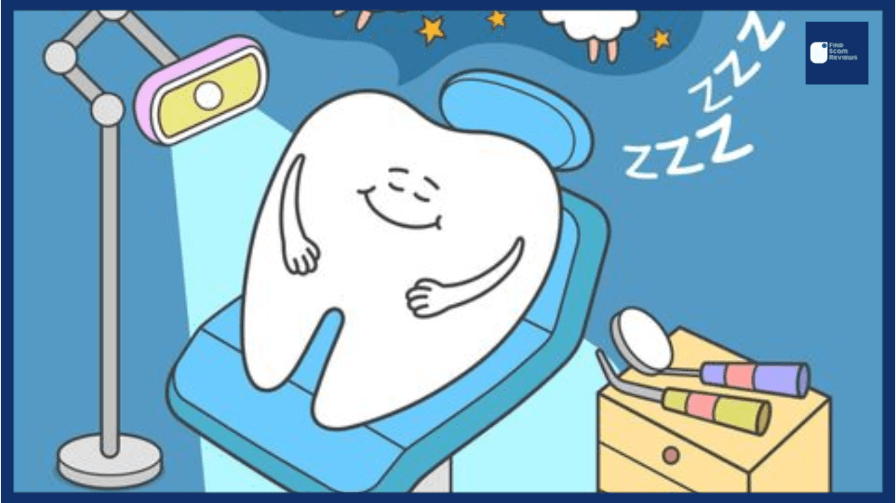
How Long Does Dental Anesthesia Last?
Dental anesthesia is a standard procedure that can help to make dental treatments more comfortable. It involves the injection of a dental numbing agent into the gums, which will then block the sensation of pain in the teeth and mouth.
The anesthesia usually lasts about an hour, but it can take a few minutes to several hours to wear off completely. You may experience minor discomfort and a slight headache after the procedure, but these side effects should dissipate within a few hours.
Call your dentist for further instructions if they don’t, or you experience anything more severe.
1. What is dental anesthesia, and how does it work
Dental anesthesia is a local anesthetic drug that numbs the mouth and jaws to allow dental work to be carried out without pain. There are a variety of different types of dental anesthesia, each of which works in a slightly different way.
The most common type is lidocaine, which blocks the nerves that transmit pain signals to the brain. This ensures that patients will not feel any pain during dental procedures. Other types of dental anesthesia include bupivacaine and mepivacaine, which work similarly to lidocaine but can provide longer-lasting numbness.
Dental anesthesia is vital to ensuring that patients have a positive experience during dental treatment. In some cases, the effects of general anesthesia may be used for complex dental procedures. This type of anesthesia puts patients in a deep sleep, meaning they will not be aware of any pain during the process.
2. How long does dental anesthesia last

Dental anesthesia is used to help manage pain and keep patients comfortable during dental procedures. Local anaesthetic drug numbs a specific area, while general anesthetic medication can lead to anesthesia of the entire body.
The type of anesthetic used will determine how long it lasts. Dental Local anaesthesia typically wears off within 1-2 hours, while general anesthesia may cause drowsiness for a few hours or even days.
Patients should always follow their dentist’s instructions for aftercare, which may include avoiding strenuous activity or eating hard foods. With proper care, dental anesthesia is a safe and effective way to manage pain during dental procedures.
3. What are the side effects of dental anesthesia
Dental anesthesia is a medication used to numb the mouth and throat during dental procedures. There are several different types of dental anesthesia, each with its side effects.
Dental anesthesia’s well-known side effect include dizziness, double vision, blurred vision, nausea, vomiting, and dry mouth. In rare cases, patients may also experience more severe side effects such as seizures, difficulty breathing, and heart problems like a temporary rapid heartbeat and high blood pressure.
Patients should consult with their dentist or doctor before having any dental procedure to ensure that they are aware of all potential side effects.
4. When should you call your dentist after getting dental anesthesia
Dental anesthesia is a safe and best way to numb the mouth and relieve pain during dental procedures. However, as with any medication, potential side effects can occur. If you experience any unusual symptoms after receiving dental anesthesia, you must call your dentist immediately.
Common side effects of dental anesthesia include numbness, tingling, and weakness in the jaw. These symptoms typically resolve within a few hours. However, if they persist or worsen, please call your dentist so that they can evaluate your symptoms and determine the best course of treatment.
In rare cases, more severe side effects such as dizziness, nausea, or difficulty breathing can occur. If you experience any of these symptoms, please seek medical attention immediately.
5. How to prepare for dental anesthesia
Dental anesthesia is a standard procedure that can help to reduce pain and anxiety during dental treatment. While most people experience no complications from anesthesia, it is vital to know the potential risks and take steps to minimize them.
Here are some tips to help you prepare for dental anesthesia:
- Schedule a dentist appointment or oral surgeon to discuss the procedure and any concerns you may have.
- Make sure to tell your dentist or oral surgeon about any medical conditions you have and any medications you are taking.
- Avoid eating or drinking for at least six hours before the procedure.
- Arrange for someone to drive you home after the procedure.
By following these simple tips, you can help to ensure a safe and successful dental anesthesia experience.
ALSO READ: The 4 Truth About Pineapple Juice Wisdom Teeth: Is There A Link?
6. What happens during a dental procedure with anesthesia

Before any dental procedure with anesthesia, your dentist will review your medical history to be sure that it is safe for you to receive anesthesia. Once it is determined that you are a good candidate for dental anesthesia, your dentist will select the type of procedure that is best suited for your procedure and level of dental anxiety.
There are three main types of dental anesthesia: local, IV sedation, and general anesthesia. Local dental anesthesia numbs a small area around your tooth so that you will not feel any pain during the procedure. IV sedation uses medication to help you relax, but you will still be awake.
General anesthesia puts you to sleep during the process. No matter what type of dental anesthesia you receive, you can rest assured that your dentist will constantly monitor your vital signs and ensure that you remain safe and comfortable throughout the procedure.
7. How long does it take for the numbness to go away after the dentist?
Novocaine is a medication that modern dentists use to numb the treatment area around teeth before procedures. It works by blocking nerve signals, which prevents pain from being felt. Novocaine typically wears off within 20-60 minutes after the injection.
However, it can take longer for the numbness to completely go away. Sometimes, people may feel residual numbness for several hours after the procedure. While this is not generally causing concern, it is essential not to bite or injure the tongue or cheek while numb feeling.
If numbness persists for more than a few hours, you must contact your dentist.
8. What happens if a dental injection hits a nerve?
A dental injection is used to the numb area around a tooth before a procedure. The injection is given by inserting a needle into the gum’s soft tissue and depositing the anesthetic near the nerve that provides a stinging sensation to the tooth.
In most cases, the needle is inserted with little or no discomfort. However, if the needle hits a nerve, it can cause sharp, shooting pain. This is usually temporary and will resolve once the anesthetic has taken effect. In rare cases, however, the pain may persist for several hours or days.
If this occurs, it is essential to seek medical attention as soon as possible. Untreated dental pain can lead to severe infections and other complications.
9. Why are dentist needles so big?

Dental needles deliver a local anesthetic to a specific area on the surface of your mouth. The large needle size is necessary to ensure the medication is given deep enough to numb the area.
The size of a needle is determined by the gauge, which is the diameter of the lumen or hollow part of the needle. The higher the gauge, the smaller the diameter of the needle. Dentist needles are typically size 30 or 31 gauge, meaning they have a relatively small diameter. The smaller the gauge, the more comfortable the injections will be for patients.
In addition, the large size helps to prevent the needle from breaking while it is being inserted into the gums. While dental needles may be larger than other types of needles, they are designed to cause minimal patient discomfort. The needles are thin and flexible and sharpened to an excellent point.
As a result, most patients only report a moment of despair when the needle is inserted. Once the anesthetic has been delivered, the patient should feel no pain for the duration of their dental procedure.
10. Can I sleep after dental anesthesia?
It is not recommended that you sleep after dental anesthesia because there is a risk of aspirating vomit while you are unconscious. Aspiration occurs when liquids, food, or vomit are brought up from the stomach and breathed in (inhaled). This can happen if you lie down or fall asleep after dental anesthesia.
Aspiration can cause serious health problems, including pneumonia, so staying awake and alert for a few hours after your medical procedure is essential. If you feel sleepy, try sitting up or walking around to help keep yourself awake.
You should also avoid drinking alcohol for at least 24 hours after dental anesthesia as it can increase the risk of aspiration. If you have any questions or concerns, ask your dentist or anesthesiologist.
Conclusion – How Long Does Dental Anesthesia Last?
Dental anesthesia is a safe and effective way to numb the mouth and relieve pain during dental procedures. While most people experience no complications from anesthesia, it is crucial to know the potential risks and take steps to minimize them.
By following these simple tips, you can help to ensure a safe and successful dental anesthesia experience.




